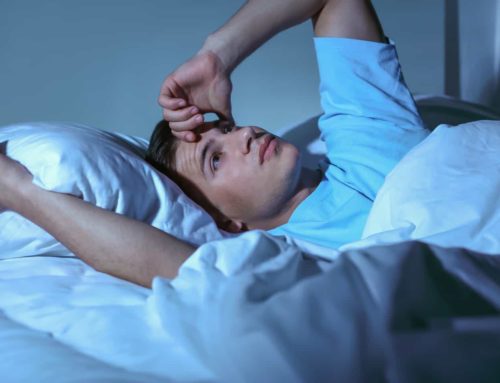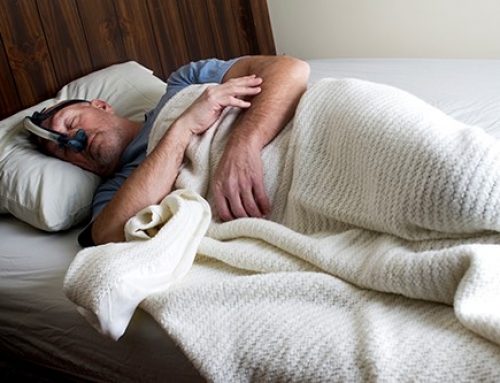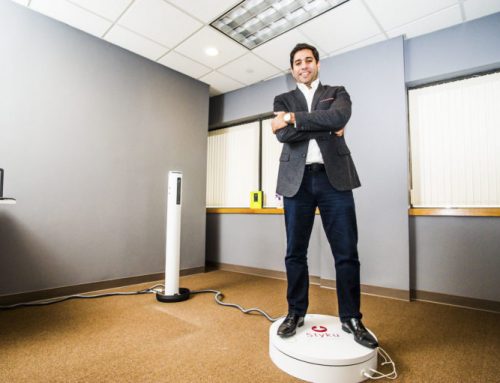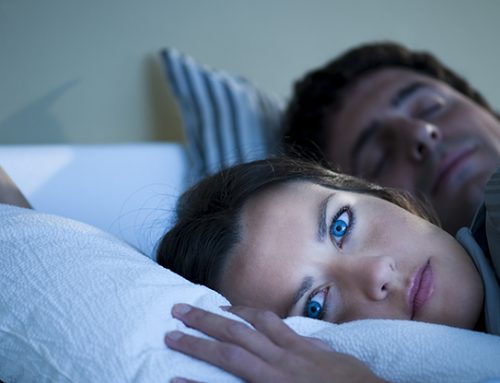Obstructive Sleep Apnoea is the most common form of sleep apnoea, affecting four in 100 middle-aged men in the UK and around two in 100 middle-aged women. But what exactly is the condition and why does it happen?
Put simply, obstructive sleep apnoea is where the walls of the throat relax and narrow throughout the sleep cycle, causing breathing to be restricted. This interrupts sleep, greatly affecting the quality of rest, leading to further health difficulties. If Obstructive Sleep Apnoea is not managed, those with the condition may develop high blood pressure and increased risk of heart problems or strokes, or develop type 2 diabetes.
Types of Obstructive Sleep Apnoea
Health professionals categorise obstructive sleep apnoea into two distinct categories:
– Apnoea, which is where the soft tissue and muscles within the throat relax, causing a complete blockage of the airway for 10 seconds or more.
– Hypopnoea, which is a partial blockage to the airway that cuts airflow in half for a duration of 10 seconds or more.
It is not unheard of for those who suffer from obstructive sleep apnoea to experience episodes of both apnoea and hypopnoea, even having multiple episodes of both types in the same night, occurring every few minutes in the most severe cases. Due to this, the condition is also referred to as obstructive sleep apnoea-hypopnoea syndrome.
Symptoms
The symptoms of obstructive sleep apnoea are relatively vague and it can be hard to figure out if you are suffering from the condition. However, you may have the condition if: you find yourself making gasping, snorting or choking noises while you sleep, your breathing stops and starts while you sleep, you sweat in your sleep, or that you always feel tired and unrested.
If these symptoms sound familiar, you should make an appointment to get tested as soon as possible. This is also a good idea even if you do not remember waking up, as your brain may subconsciously deal with the problem.
Causes
Throughout the sleep cycle, the throat muscles and soft tissue naturally relax, but this becomes a problem when other external factors cause them to relax even more, obstructing the airways. There a number of different factors that cause obstructive sleep apnoea, including:
– Weight, being overweight increases the amount of tissue within the throat, also placing more strain on the muscles within.
– Age, anyone over 40 possesses a much higher risk of developing obstructive sleep apnoea. Women going through the menopause who may experience hormonal changes may also develop obstructive sleep apnoea.
– Gender, although scientists have not been able to identify why males typically develop obstructive sleep apnoea.
– Medicine, those who take any medicines with any sedative effects may suffer from obstructive sleep apnoea due to the relaxation effect of their medicines.
– An unusual neck structure, including a small lower jaw, large tonsils, a narrow airway, or large adenoids.
Treatment
There are several different ways to deal with obstructive sleep apnoea, and it is an entirely treatable condition. The easiest way to control the condition is to undergo several lifestyle changes to reduce the stress put on the muscles and soft tissue within the throat. This could be reducing drinking, losing weight, or stopping smoking.
One of the most common ways to treat the condition is through the use of a continuous positive airway pressure machine. This piece of equipment prevents your airway from closing while you sleep by supplying a constant supply of air through a mask. The machine will help improve the quality of sleep, leaving you feeling much more rested. However, some people may find themselves feeling uncomfortable or awkward using the machine and it may take some time to adjust to.
Another form of treatment is the use of a mandibular advancement device which is a gum shield-like wrap around your teeth, holding the tongue and jaw forward, reducing the pressure on the throat muscles and soft tissue.
If you think you may be suffering from this condition, contact us today one of our sleep specialists will be able to help you get tested and advise on possible treatments.




